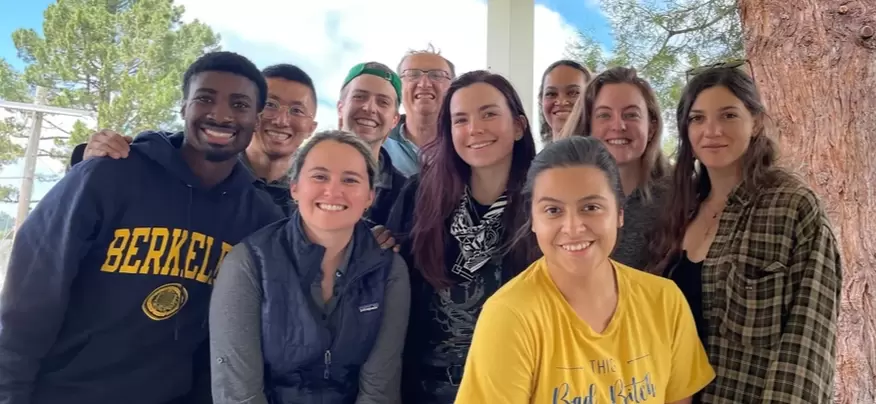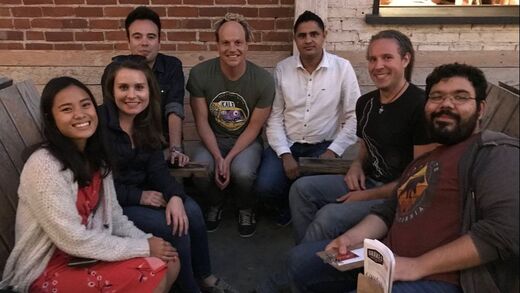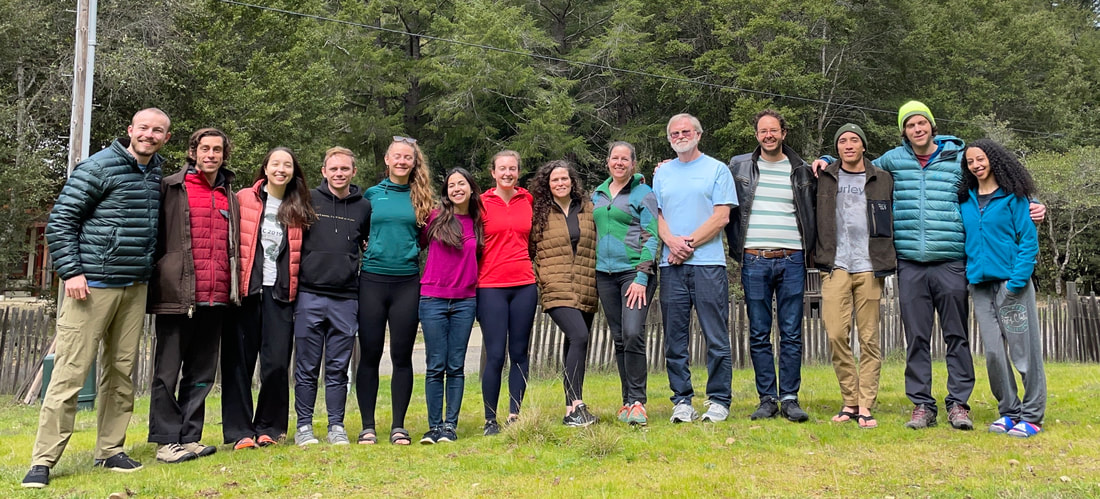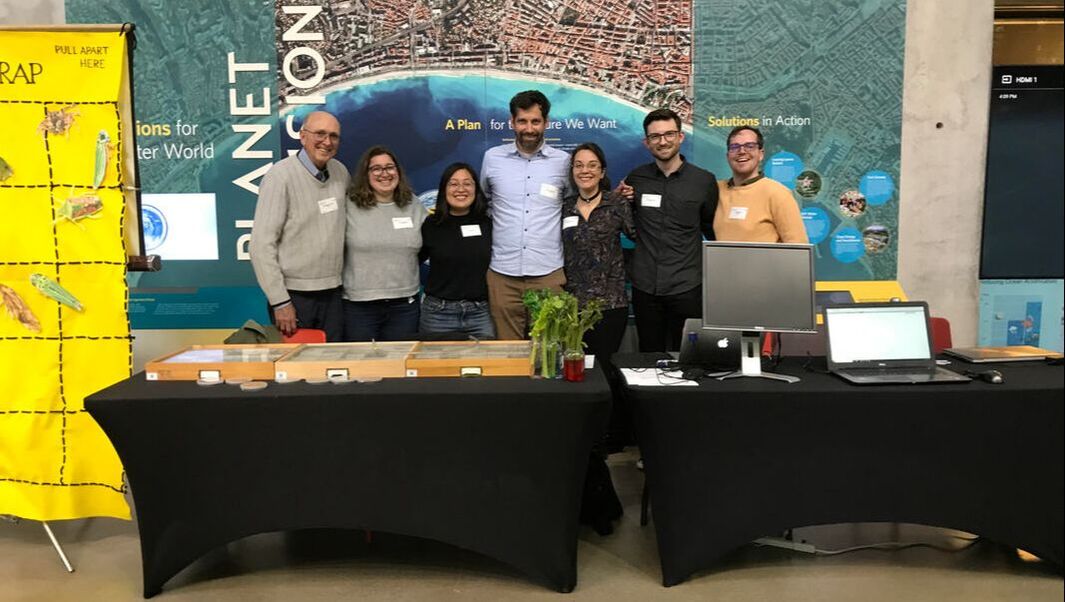Member Labs
We are a groups of labs across UC Berkeley who are interested in various aspects of microbial and/or infectious disease ecology and evolution. We include members across the Integrative Biology, Computational Biology, Public Health, Plant and Microbial Biology, Demography, and Environmental Science, Policy, and Management.
Boots Lab Integrative BiologyWebsite: https://bootslab.org/
About Us: Parasites and pathogens continue to be a major burden to human health, cause significant damage in agriculture, and be ubiquitous in nature. We are interested in understanding the evolution and ecology of infectious disease and applying this knowledge to their management and control. We develop ecological and evolutionary theory and test the theory in insect-virus model systems in the lab and the field. In addition, we apply ecological and evolutionary theory by building epidemiological models of human tropical disease and specific ecological models of wildlife disease to develop evolutionarily rational intervention and control strategies. Remais Lab Public Health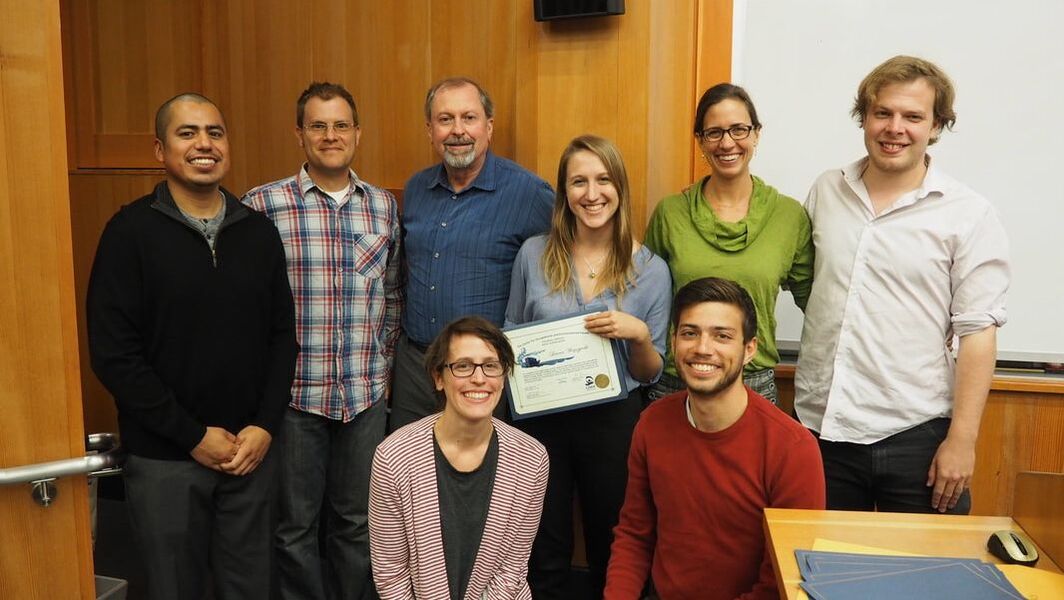
Website: https://justinremais.weebly.com/
About Us: Our group develops and applies methods for estimating the distribution and spread of infectious diseases in environments experiencing significant changes, such as those caused by urbanization, industrialization, changes in water resources, and a changing and increasingly variable climate. We investigate the dynamics of globally important waterborne and vector-borne infections—including diarrheal diseases, malaria, dengue, Japanese encephalitis and schistosomiasis—as significant societal and environmental changes unfold. We develop new approaches for simulating and optimizing surveillance networks to detect existing and emerging infectious diseases under changing conditions. Marshall Lab Public Health |
Koskella Lab Integrative BiologyWebsite: https://naturesmicrocosm.com/
About Us: The future of sustainable human health and agriculture rests on our ability to view microbial evolution as part of the solution rather than the problem. The Koskella lab takes on this challenge by combining discovery-based science on plant microbiomes with hypothesis-driven experimentation. Our research examines host-microbe and microbe-microbe interactions by first identifying patterns in nature and then, in line with current theory where available, generating predictions to explicitly test in the laboratory using a combination of experimental evolution, microbial ecology approaches, and molecular biological techniques. Almeida Lab Environmental Science, Policy, and ManagementWebsite: https://nature.berkeley.edu/almeidalab/
About Us: Our mission is to conduct research and provide academic training on the ecology of emerging plant diseases. Our research tools and approaches range from field experiments and disease surveys to greenhouse experimental manipulations, as well as the functional characterization of pathogen genes involved in pathogen-vector-plant interactions and studies on pathogen diversity and evolution. This holistic approach is necessary to successfully integrate fundamental science findings and translate that knowledge into real-world practical solutions; in other words, we attempt to bridge fundamental and applied sciences to address current and emerging disease problems. |
Website: https://www.marshalllab.com/
About Us: Understanding how gene drive systems spread through populations of mosquitoes requires mathematical models and knowledge of the ecology and environment into which they could be introduced. Our research in this area therefore falls at the interface between molecular biology and ecology. Specifically, we model CRISPR-based gene drive systems to control Anopheles gambiae, the main African malaria vector, and Aedes aegypti, the mosquito vector of dengue, chikungunya and Zika virus. Our goal is to move this field forward in a way that allows the burden of mosquito-borne diseases to be reduced in a safe and socially responsible way.
About Us: Understanding how gene drive systems spread through populations of mosquitoes requires mathematical models and knowledge of the ecology and environment into which they could be introduced. Our research in this area therefore falls at the interface between molecular biology and ecology. Specifically, we model CRISPR-based gene drive systems to control Anopheles gambiae, the main African malaria vector, and Aedes aegypti, the mosquito vector of dengue, chikungunya and Zika virus. Our goal is to move this field forward in a way that allows the burden of mosquito-borne diseases to be reduced in a safe and socially responsible way.
|
Contact us to be added to our members page!
|
